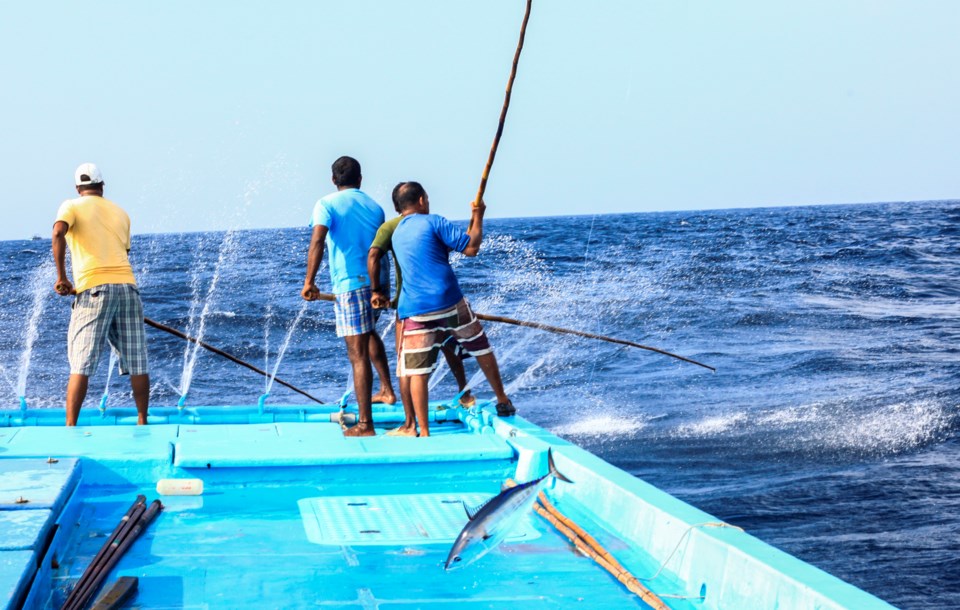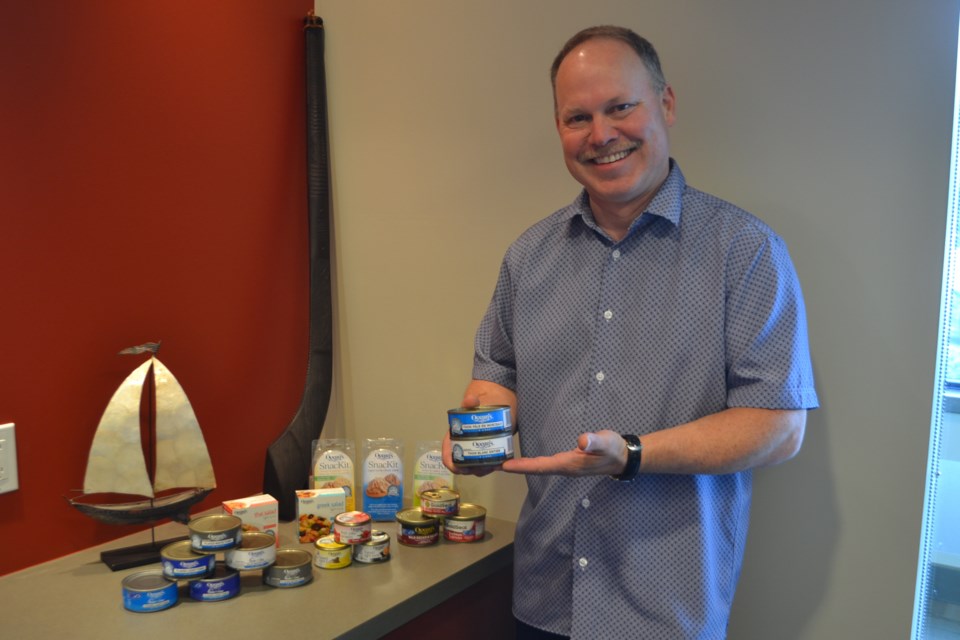A Richmond firm is leading Canada’s tuna market towards a more sustainable approach to ocean ecosystems by providing tuna caught using fair practices.
Ocean Brands, located at 600 Lysander Lane, holds the second-largest market share of tuna business in Canada. Its tuna is mostly caught in the west central Pacific Ocean, processed in Thailand and sold in Canadian markets.
Earlier this month, Greenpeace ranked the company fourth place on its Canned Tuna Sustainability Ranking, in recognition of its effort to push real change on the water.
Since October 2016, the Richmond-based brand has been providing tuna caught only in ways considered responsible to ocean species by Greenpeace, according to Ian Ricketts, vice-president of Ocean Brands.
“It was one of the biggest milestones for our company. We now provide the widest range of FAD-free tuna in Canada, and we are very proud of that,” said Ricketts.
(FAD stands for a fishing method called Fish Aggregating Devices).
Sarah King, senior ocean strategist at Greenpeace Canada, said “we are very happy to see big players like Ocean Brands really pushing the market in the right direction and driving the change of the industry towards sustainability.”
Ocean Brands has changed to become greener over time. Launched in 1983 in Richmond, the company was like most other fishing firms at that time, using FAD, which is still dominant in the tuna industry today.
FAD uses man-made objects to attract fish to make them easy to catch. However, the device also attracts other species like turtles, sharks and baby fish, and is defined as a destructive fishing method to the ocean system and fish stocks by Greenpeace Canada.
The bycatch rate can be as high as 10 per cent, and the sharks and turtles caught are often thrown back to the ocean dead, according to Ricketts.
Many major fishing brands and supermarkets in Australia and Europe have made commitments to ban FAD-caught fish on the market.
“Canada is actually behind,” said Ricketts. “We are happy to lead the change. We believe it’s what our consumers want and it’s beneficial for the industry and our company.”
Ocean Brands started the transition to more sustainability a decade ago by selling tuna that was caught through a method called “pole and line,” which means one man catches one fish at a time using a fishing rod.

“It’s the most sustainable fishing, but it doesn’t allow us to provide responsibly caught fish with a price affordable for all Canadians,” said Ricketts.
The company then introduced fish sourced by methods such as “free swimming catching” and “circle hook catching,” which are considered responsible methods that are more affordable.
Greenpeace has preferences for pole and line, free swimming (FAD-free) and “circle hook” fishing methods.
“Free swimming” reduces the bycatch rate down to less than one per cent. And the company pays fishermen three to five cents more per can than how much they would make by catching fish with FAD.
“Those new methods enable us to provide FAD-free fish on a large scale and eventually eliminate any FAD-caught tuna from our supplies,” said Ricketts.
Although the company faces competition from other businesses that are able to offer cheaper fish caught using FAD, it believes that more and more consumers will care about how their fish is sourced and that the company is heading in the right direction.
“If we wait for all 35 million Canadians to understand the difference and ask for the change, or wait for all the countries to agree on the fishing method, it would be too late,” said Ricketts. “We want to be in this business for another 50 to 100 years so we need to protect our resources. We don’t want the collapse of the Newfoundland cod fishery to be repeated.
In 1992, the Newfoundland Grand Banks cod fishery collapsed after years of overfishing and incompetent fisheries management, which put 40,000 people out of work.
Ricketts said consumers can also drive the change by choosing canned tuna with labels such as FAD-free, pole and line, free-school swimming caught and circle hook caught.
“The decision you make to choose responsibly caught tuna changes the way fishing is done around the world,” said Ricketts.
“Sustainability is not something you arrive at; it’s a journey.”



